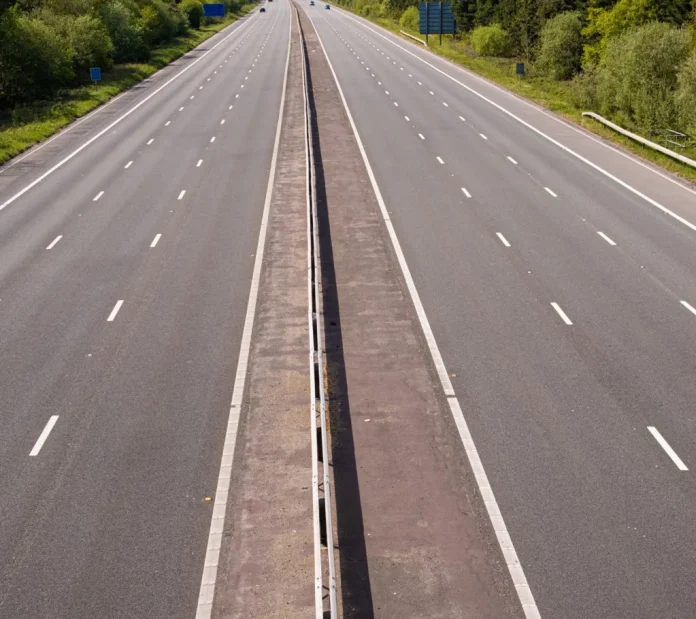Telematics is rapidly transforming the way businesses in Wales and across the UK manage their fleets. As a technology that combines telecommunications and informatics, telematics enables the collection, transmission, and analysis of data from vehicles in real-time. This data provides insights into various aspects of fleet operations, including vehicle location, driver behaviour, fuel consumption, and maintenance requirements. For businesses reliant on transportation or logistics, telematics offers the potential to streamline operations, reduce costs, and improve overall efficiency.
In today’s competitive business environment, any technology that can provide a tangible return on investment (ROI) is worth exploring. Telematics systems not only help to optimise fleet performance but also support compliance with regulatory requirements, enhance customer service, and contribute to sustainability goals. For businesses in Wales that depend on efficient transportation, embracing telematics can provide a competitive edge in the marketplace.
Reducing Operating Costs
One of the primary benefits of telematics for businesses in Wales is the reduction of operational costs. Fleet operations can be expensive, particularly when fuel costs, vehicle maintenance, and labour are factored in. Telematics systems provide detailed data on fuel consumption, allowing businesses to identify areas where fuel usage can be optimised. This may include route optimisation, reducing idle times, and improving driving behaviours. By monitoring these factors in real time, businesses can significantly lower their fuel costs, which can lead to long-term savings.
Furthermore, telematics can provide insights into vehicle maintenance needs. Predictive maintenance alerts can help fleet managers identify potential issues before they become costly problems. This reduces the risk of vehicle breakdowns, minimises repair costs, and maximises the lifespan of each vehicle. For small and medium-sized enterprises (SMEs) in Wales, this kind of cost-saving technology is invaluable.
Improving Driver Behaviour and Safety
Telematics not only benefits the vehicles but also improves the behaviour of drivers. Through continuous monitoring, the system can track driving habits such as speeding, harsh braking, and acceleration. Businesses can use this data to implement driver training programmes aimed at improving safe driving practices. Not only does this reduce the risk of accidents, but it also helps lower insurance premiums, as insurers often provide discounts to businesses that demonstrate proactive measures in promoting road safety.
For companies operating in Wales, where rural roads and challenging driving conditions are common, improving driver behaviour is especially crucial. Safer driving reduces the likelihood of accidents, which not only ensures the safety of drivers but also minimises vehicle downtime and repair costs.
Compliance with Regulatory Standards
Businesses in Wales that operate vehicle fleets must comply with a variety of regulatory requirements. These regulations often include driver working hours, vehicle emissions standards, and safety protocols. Telematics systems can simplify compliance by automatically tracking and recording necessary data. For instance, digital tachographs integrated with telematics can monitor driver hours, ensuring that businesses comply with the Working Time Directive and other legal requirements.
Moreover, as environmental concerns become more prominent, businesses must also take steps to reduce their carbon footprint. Telematics systems can track emissions levels and fuel efficiency, providing businesses with the information they need to implement greener practices. By optimising routes and reducing fuel consumption, businesses can not only reduce their environmental impact but also demonstrate a commitment to sustainability, which is increasingly valued by customers and stakeholders.
Enhancing Customer Service
Another significant advantage of telematics is the ability to enhance customer service. For businesses involved in logistics, delivery, or transport services, accurate real-time tracking enables better communication with clients regarding delivery times and locations. This level of transparency builds trust and can improve customer satisfaction. By providing precise ETAs and updates on vehicle status, businesses can deliver a more reliable and efficient service to their customers.
Telematics also allows for proactive responses to potential disruptions. For example, if a vehicle is delayed due to traffic or a breakdown, the system can automatically alert the fleet manager, who can then inform the customer of the delay and provide an updated delivery time. This kind of responsiveness enhances the customer experience and can lead to stronger client relationships, especially in industries where timing is critical.
Telematics and the Role of Radius
For businesses in Wales looking to adopt telematics solutions, companies such as Radius offer tailored services that meet the specific needs of local businesses. Radius (available at radius.com) is a provider of telematics, fuel card services, and vehicle management solutions, offering a range of products designed to help businesses optimise their fleet operations. By partnering with a trusted provider like Radius, Welsh businesses can benefit from customised telematics solutions that provide the data and insights necessary to make informed decisions about their fleets.
Radius’s telematics systems are designed to integrate seamlessly with existing business operations, allowing for the collection of essential data without disrupting daily workflows. The insights provided by these systems can support businesses in making smarter decisions about route planning, vehicle maintenance, and driver management. Whether a business operates a small fleet or a large one, the tools provided by Radius can make fleet management more efficient and cost-effective.
Supporting Sustainability and the Environment
In recent years, there has been increasing pressure on businesses to reduce their environmental impact. For businesses in Wales, which has a rich natural environment, there is a strong emphasis on sustainability. Telematics systems contribute to environmental goals by providing the data necessary to optimise fuel efficiency and reduce emissions. By tracking fuel consumption and driver behaviour, businesses can implement strategies to reduce unnecessary fuel use, such as reducing idle times and promoting eco-friendly driving practices.
In addition to reducing carbon emissions, telematics systems can help businesses participate in local sustainability initiatives and meet government regulations regarding emissions. For example, the UK government has set targets to reduce greenhouse gas emissions, and businesses in the transportation sector are expected to play a significant role in achieving these targets. By adopting telematics, businesses in Wales can not only reduce costs but also contribute to broader environmental objectives.
Conclusion
Telematics offers a wide range of benefits for businesses in Wales. From reducing operating costs to improving driver safety and ensuring regulatory compliance, the technology provides valuable insights that can transform fleet management. In a business landscape that is increasingly competitive and focused on sustainability, telematics gives Welsh businesses the tools they need to succeed.
As more businesses recognise the potential of telematics, it’s essential to partner with a trusted provider like Radius, which offers comprehensive solutions tailored to the specific needs of local businesses. Whether a company is looking to optimise fuel usage, improve driver safety, or enhance customer service, telematics is a powerful tool that can deliver significant benefits for businesses of all sizes.
Help keep news FREE for our readers
Supporting your local community newspaper/online news outlet is crucial now more than ever. If you believe in independent journalism, then consider making a valuable contribution by making a one-time or monthly donation. We operate in rural areas where providing unbiased news can be challenging. Read More About Supporting The West Wales Chronicle


























